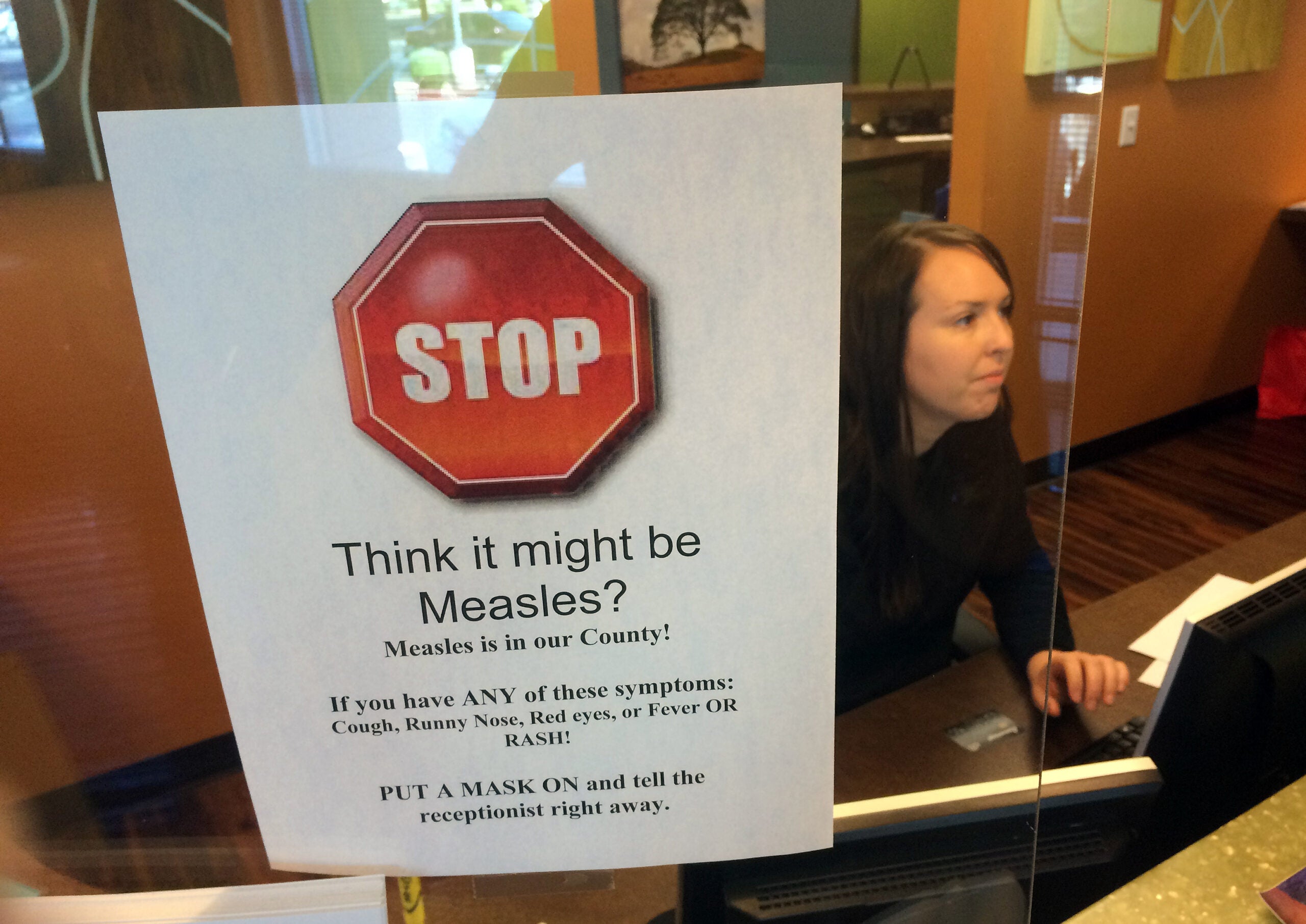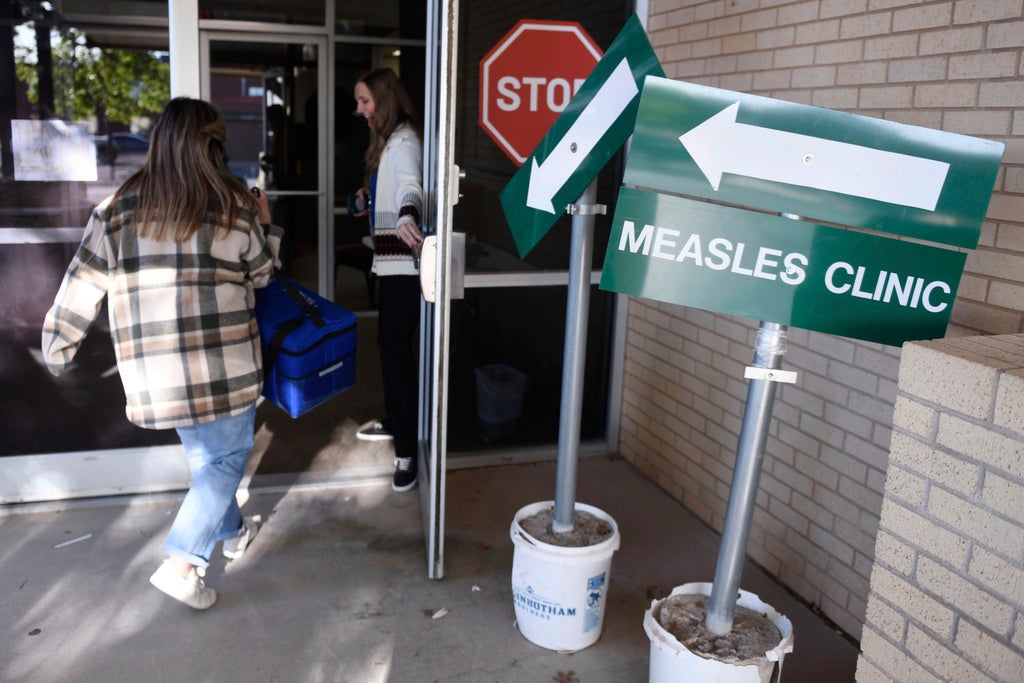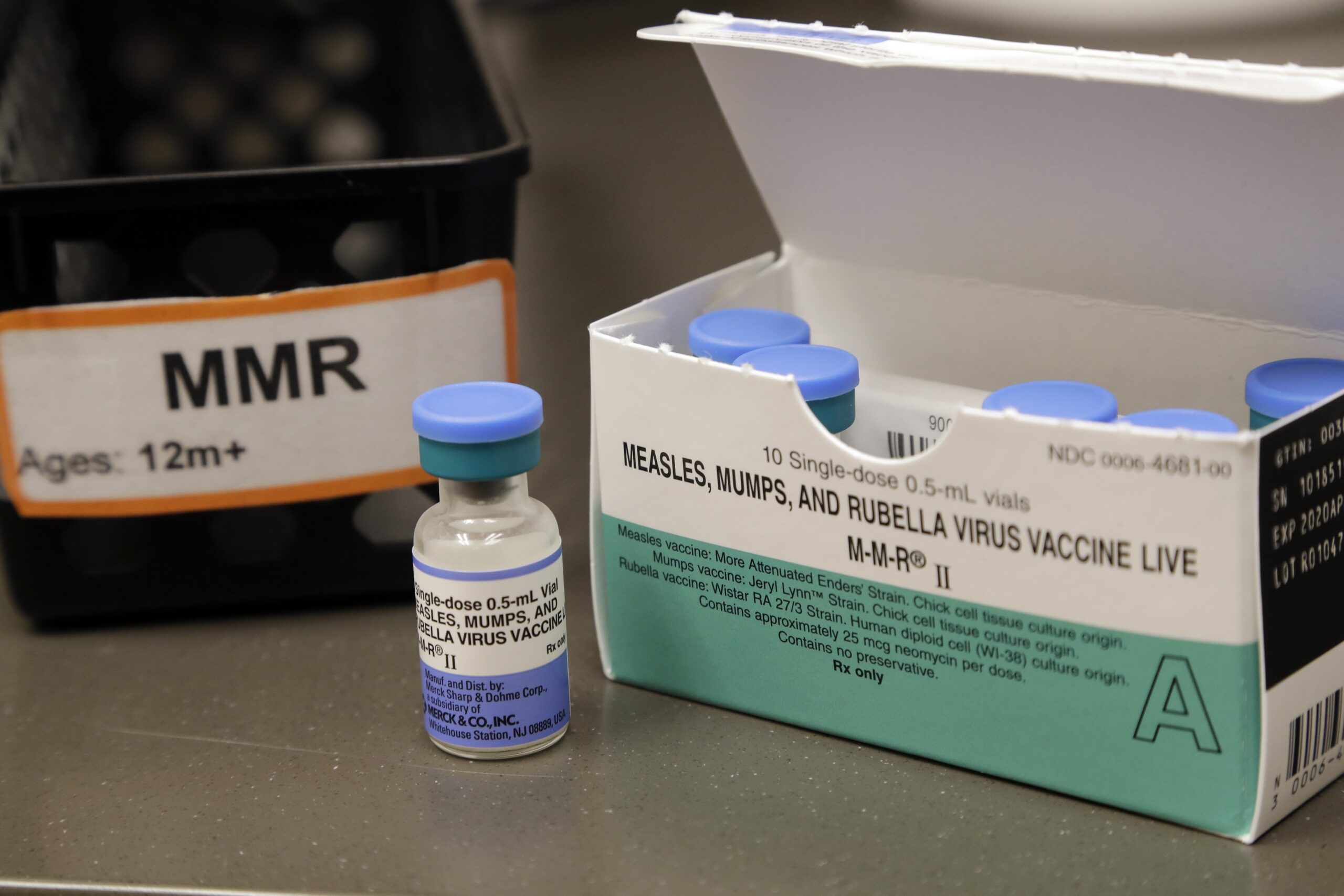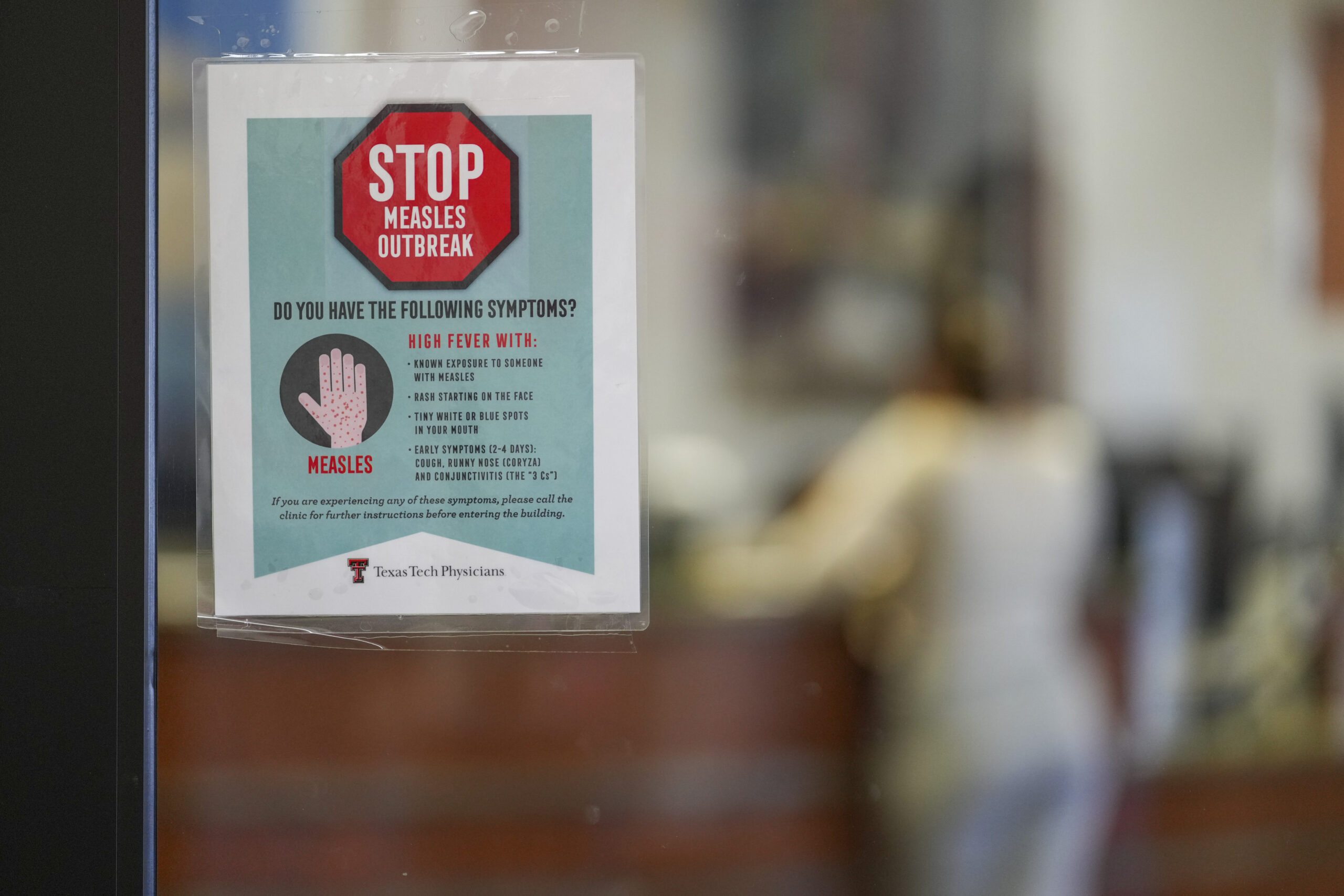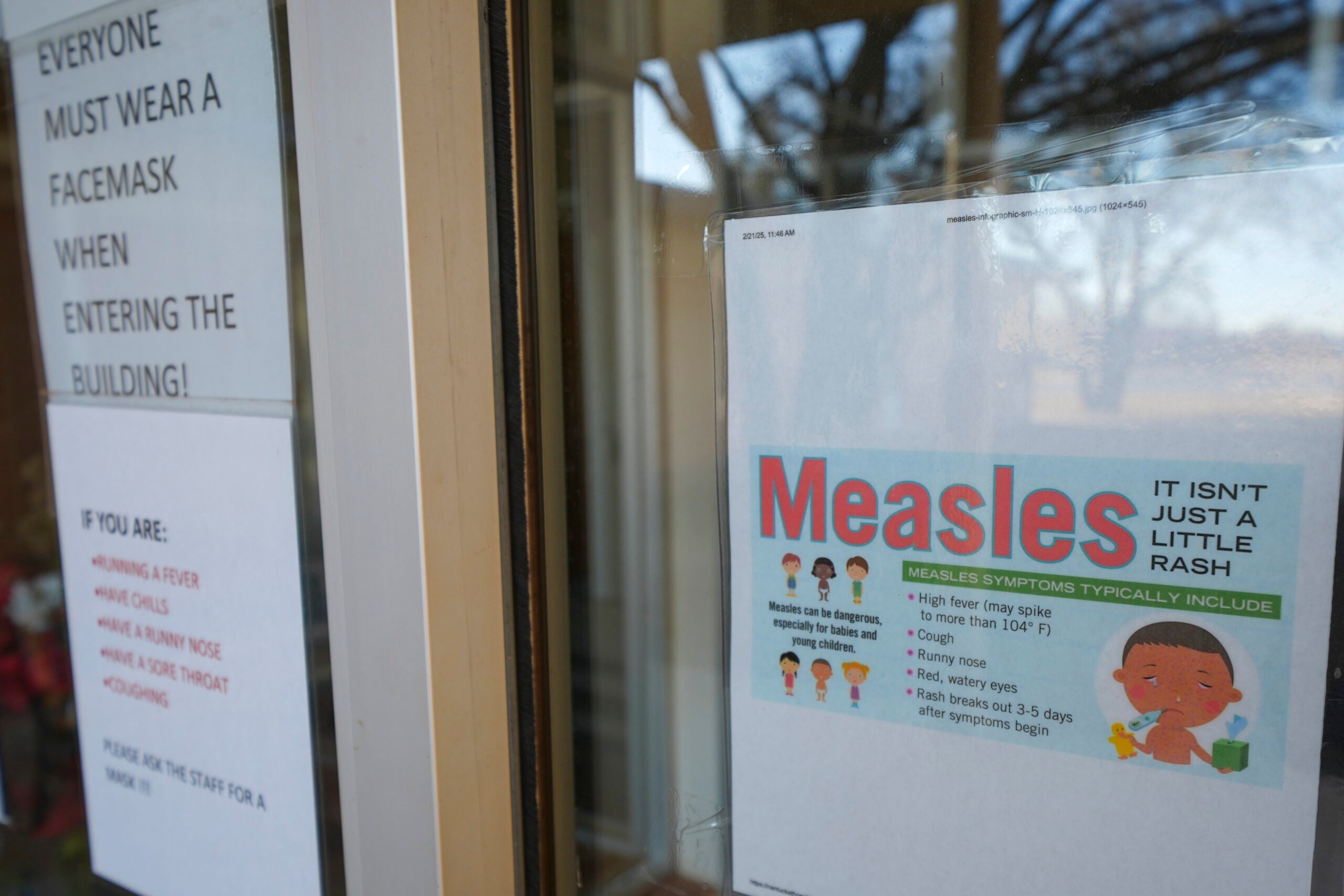A Dane County resident who works in Rock County has measles, state officials confirmed Friday.
The state Department of Health Services said public health agencies are working to identify and notify people who may have been exposed to the virus.
Officials did not identify the person, but said the individual is an adult who contracted the virus while traveling domestically.
News with a little more humanity
WPR’s “Wisconsin Today” newsletter keeps you connected to the state you love without feeling overwhelmed. No paywall. No agenda. No corporate filter.
Measles is a highly contagious and potentially deadly disease. Vaccinations largely protect against its spread — but vaccination rates have been falling in Wisconsin and nationally.
Ten years ago, 86 percent of Wisconsin children under 2 years old had gotten at least one shot of the measles, mumps and rubella vaccine, according to state data. That figure has declined every year since; it was 82 percent in 2023.
On the local level, figures vary widely. In Clark County, which has a high population of Amish or other Christian sects that may be hesitant to vaccinate, state data showed in 2023, just 53 percent of babies had gotten a measles vaccine.
“These diseases aren’t gone,” said Dr. Stephanie Schauer, Wisconsin immunization program manager, in a Friday call with media. “They’ve been held at bay.”
But Schauer said falling vaccination rates mean it is easier for the disease to spread.
“Measles is one (disease) that we need a quite high percentage of individuals in the community protected, somewhere north of 95 percent, to really prevent an outbreak from starting and taking hold,” Schauer said.
The federal Centers for Disease Control and Prevention has recorded 128 measles cases nationally so far this year. Only 5 percent of those cases were among people known to have received two doses of the MMR vaccine. The CDC warned this month that a spike in measles outbreaks posed a “renewed threat” to eradication of the disease.
Wisconsinites can check their own vaccination states at the Wisconsin Immunization Registry. The MMR vaccine is available at doctors offices and clinics, as well as many pharmacies and health departments. If you think you have measles, DHS officials say you should contact your local doctor’s office or clinic before visiting the office, due to the highly contagious nature of the disease.
Wisconsin Public Radio, © Copyright 2025, Board of Regents of the University of Wisconsin System and Wisconsin Educational Communications Board.

